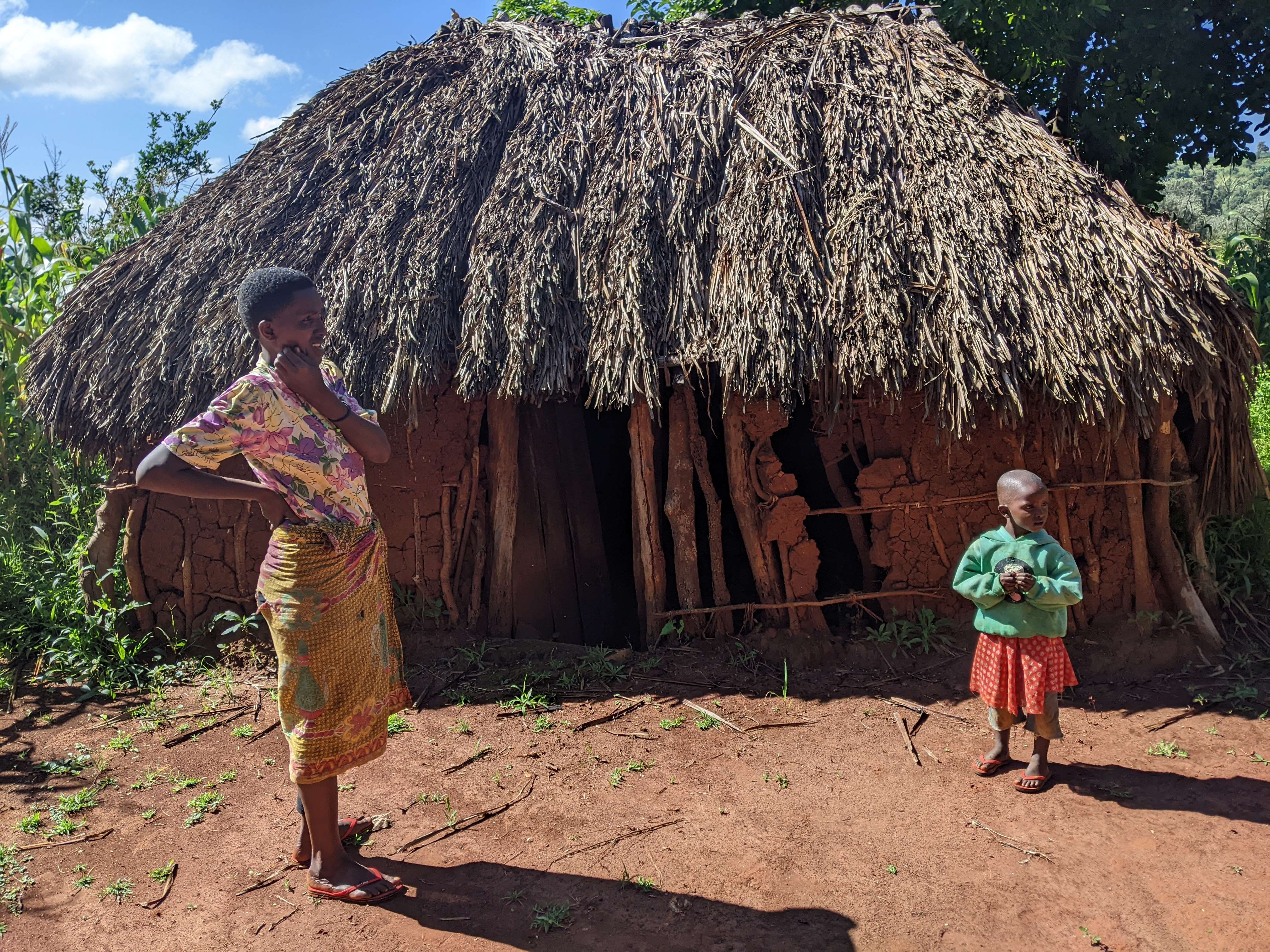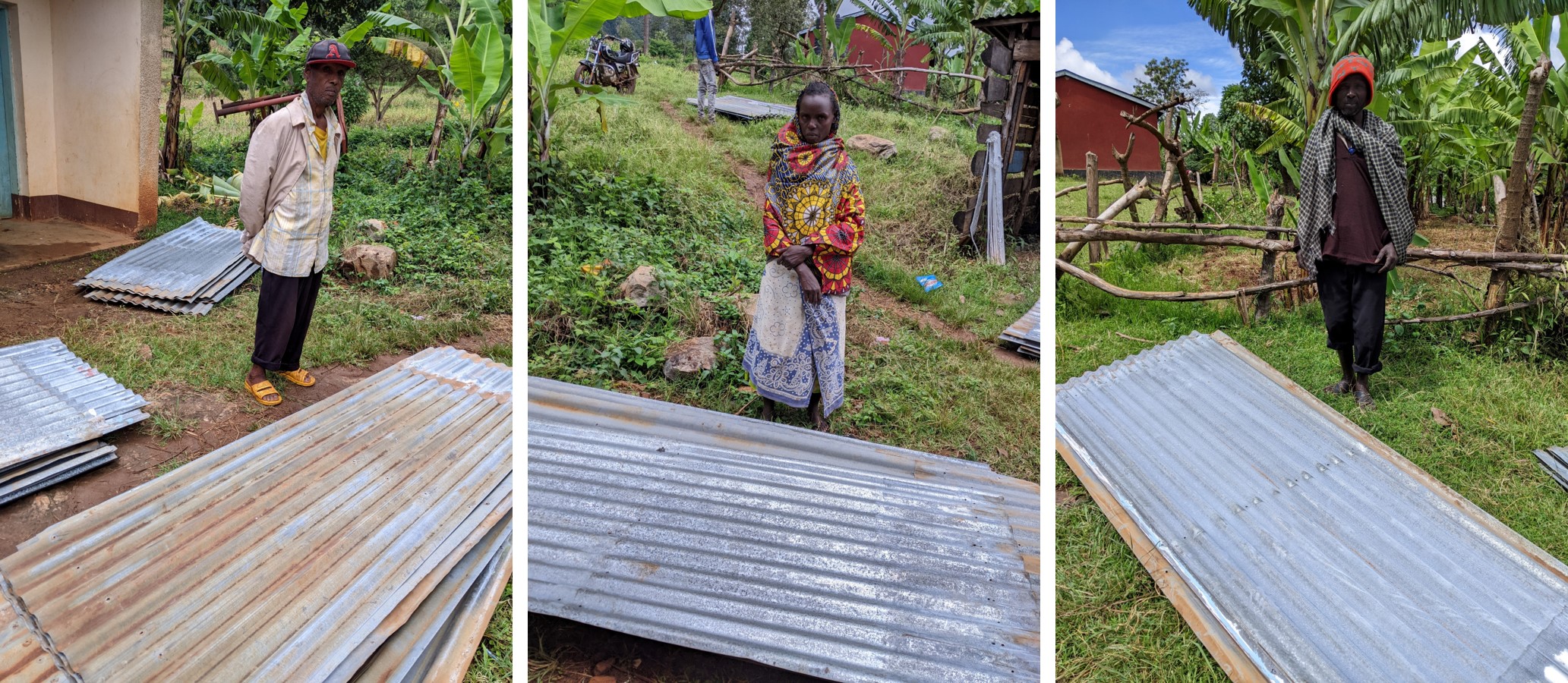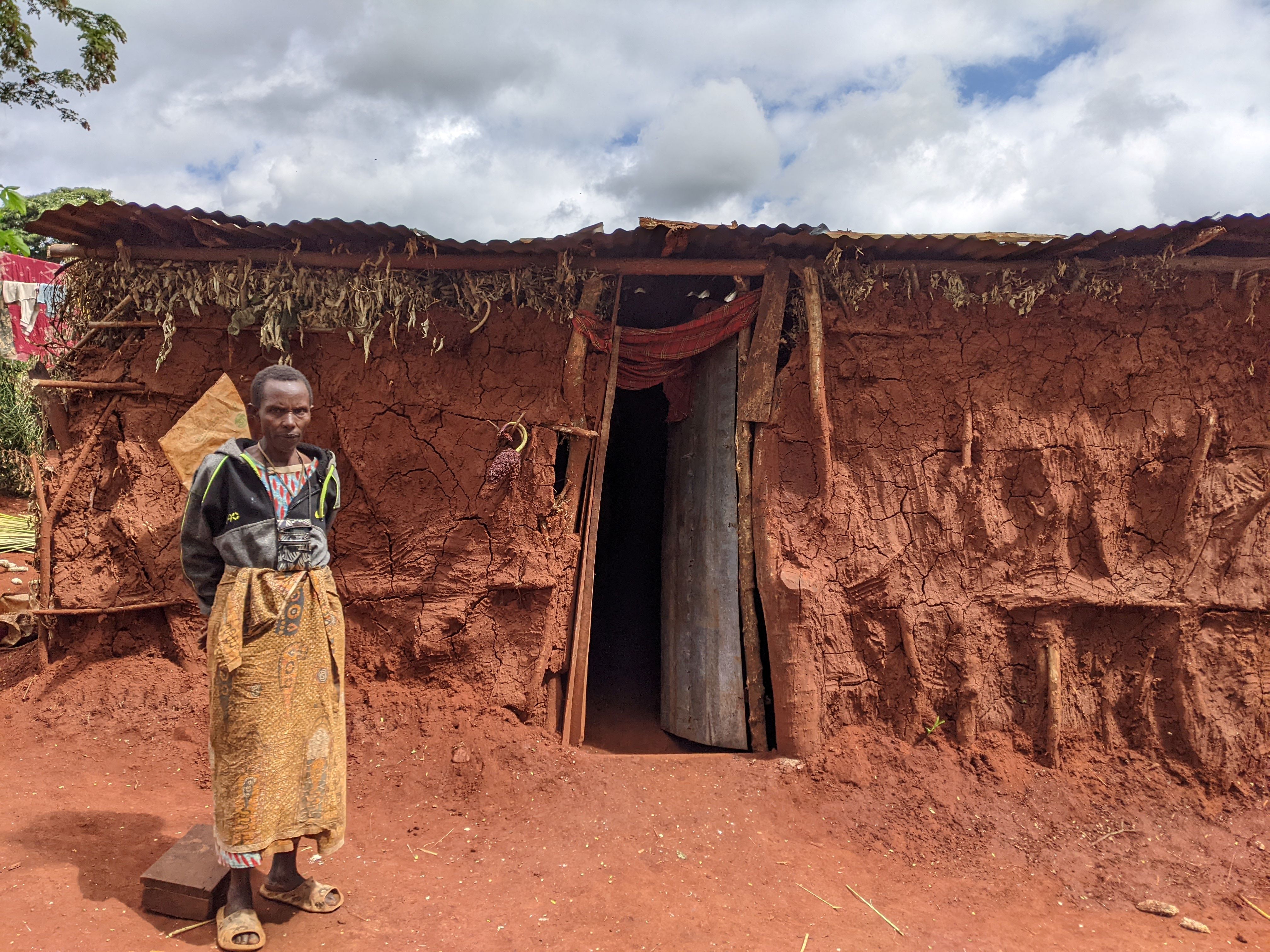Categories:
- Health
Status:
Completed On:
Start Date:
Cost:
Donation of Roofing Material to the Poorest Households
Reuse Metal Sheets from the Ufani Primary Remodel
The poorest households in Ayalagaya Ward use grass roofing instead of metal roofing. While grass or thatched roofs have been in use since ancient times and can be very effective at keeping out the rain and providing air flow for cooling, they have their challenges.
-
Maintenance Challenges: Thatched roofs require regular upkeep to combat issues such as rot and UV damage. While traditional knowledge exists within our community, the increasing demands of modern life often make it difficult for families, especially those with limited resources, to allocate time and effort for meticulous maintenance.
-
Fire Hazards: Despite their natural appeal, thatched roofs are susceptible to catching fire, posing a significant safety risk, where modern fire safety standards are paramount. Unfortunately, instances of fire incidents have underscored the need for safer alternatives.
-
Economic Considerations: While thatched roofs hold cultural significance, the economic burden associated with their maintenance and potential hazards prompts many families, particularly the most economically disadvantaged, to seek more sustainable and cost-effective roofing solutions.
-
Environmental Impact: In light of environmental concerns, there's a growing awareness of the ecological footprint of traditional thatched roofs. Sustainable alternatives, such as eco-friendly materials or improved roofing technologies, are increasingly favored to minimize environmental degradation.

When we remodeled Ufani Primary School we decided to replace the old metal roofing sheets with new roofing material. But the old iron sheets still have useful life and we decided to distribute them to the poorest families in the region to replace their grass roofs with metal roofs. Karimu removed 427 sheets from Ufani Primary School that were appropriate for reuse.
The reused sheets were made available to poor families in Ayalagaya ward based on the following criteria:
-
The beneficiary lives in Ayalagaya ward.
-
The beneficiary should belong to the Karimu list of poorest of the poor.
-
The member should have his or her own house.
-
The house should be completely grass roofed or not roofed at all.
-
The house to receive the roofing must be used for sleeping.
-
The beneficiary must have a toilet or commit to construct one before the delivery of the metal sheets.
-
The beneficiary must have their house in good condition or commit to rebuild/reinforce the walls.
-
If the above criteria are insufficient to reduce the number of beneficiaries to the available metal roofing, we will give preference to:
-
Households run by elders without an adult supporting them and/or households of HIV patients
-
Households whose ratio of land size per child is the lowest
-
Households with the least amount of livestock
Families receiving the metal sheets must roof their households with the metal sheets within one week. Each family received enough sheets to cover their sleeping building plus up to 2 sheets for the toilet building.


In total, Karimu distributed a total of 448 metal sheets to 26 households. Each family received 17 sheets, including two specifically designated for bathrooms.
Benefits:
-
Dryer sleeping quarters
-
Safer family environment for cooking
-
Improved sanitation
Cost:
-
Karimu cost: $5389
-
Community cost and/or contribution: Construction or remodeling of primary residence and/or toilet as required by program.


